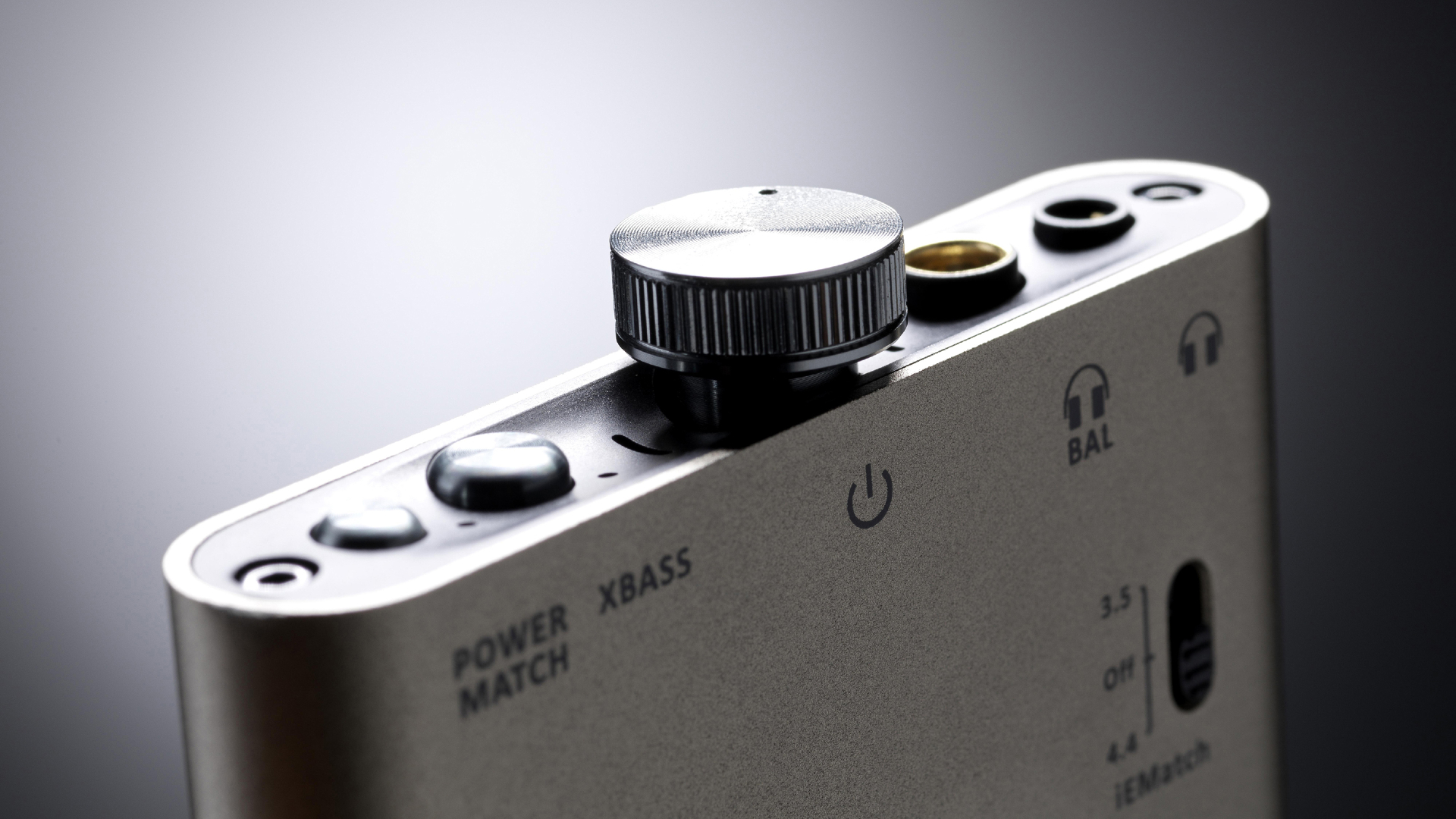Oh, USB-C ports and Titanium finishes are so hot right now.
No sooner has Apple‘s four-strong iPhone 15 lineup rolled out – a clutch of handsets which I’m sure you know finally ditched the Lightning port in favor of the more ubiquitous and just better USB-C for both charging and audio – than a range of some of the best USB-C-toting DACs also pipes up, wanting to turn your new iPhone into a hi-res audio music player.
And none looks better next to your iPhone 15 Pro or iPhone 15 Pro Max in Natural Titanium than iFi’s gloriously cheeky hip-flask shaped hip-dac 3. It now comes in a finish the UK makers are calling ‘Titanium Shadow’, because it apparently “changes tone in different lights, with hints of bronze and vintage gold.”
I loved iFi’s original 2019 hip-dac in Petrol Blue, as well the hip-dac 2 (which I helped to review for TechRadar’s sister publication, What Hi-Fi?, and which looked for all the world like the color of a good single malt but was actually called ‘Sunset Orange’). But hip-dac 3’s warm, subtle gray tones not only make the demure audio enhancer look even look even more like a hip-flask; they’ll also match a new iPhone perfectly.
And it’s not all looks! Closer inspection reveals further changes to the hip-dac 3’s specification. There are now two USB-C ports – one for audio, the other for charging (the previous two hip-dac generations used USB-A for audio – and because it was quite a deeply recessed male USB, not all spare cables played nice with it).
There is also an additional switch on the hip-dac 3’s underside now, which engages iFi’s IEMatch technology. That’s a proprietary circuit designed to optimize the amp’s output to better suit high-sensitivity headphones and earphones – particularly useful for in-ear monitors (IEMs) aka some of the best wired headphones we’ve tested.
Opinion: iFi DACs shoot from the hip – and I like it
Why should you want the Southport UK firm’s IEMatch tech? It promises to reduce background hiss and enhance detail and dynamic range while increasing the useable range of the volume control, that’s why.
More changes have been made under the hood too, with several circuit enhancements including new metal film capacitors. The DAC section features an upgraded version of iFi’s GMT (Global Master Timing) circuitry too, including a new crystal oscillator in a bid to further reduces phase noise, contributing to purer, crisper sound.
Other than these changes, the hip-dac 3 retains all the features that made the hip-dac 2 such a popular portable USB DAC/headphone amp – and one I still love.
Its sleek, robust aluminium enclosure measures just 10.2 x 7x 1.4cm so can slip easily into a pocket or bag. And it’ll more than replace the inferior DAC (digital-to-analogue converter) and amp circuitry in even the newest phones, tablets, PCs and Macs.
To get granular, Hi-res PCM and DXD audio data is supported at sample rates up to 384kHz, alongside DSD from 2.8MHz to 12.4MHz (DSD64, 128 and 256). Full decoding of MQA is also supported, performing the full ‘three unfold’ decoding process (as opposed to just the final unfold in the manner of an MQA ‘renderer’). While my pick of the 3 best wireless DACs can level up the quality of music from your phone, they cannot support these kinds of top-tier, hi-res figures over Bluetooth.
Either side of the hip-dac 3’s rotary volume control sits a pair of LEDs that change color to indicate the format and sample rate of the incoming audio, too.
The hip-dac 3’s USB-C audio input handles audio data up to 32-bit/384kHz and is asynchronous, meaning the data rate is regulated solely by the hip-dac 3’s specialized audio clock circuitry for accurate, jitter-free data transfer from the source device.
Including a separate USB-C port (to clarify: you get two USB-C ports here) for charging maintains a dedicated audio input for the purest signal path too, which also means you can use the hip-dac 3 while connected to the mains. And that is rare, even among the best portable DACs we’ve tested.
iFi hip-dac 3 is available from selected retailers from today, (October 6, 2023) at an RRP of £199 in the UK, which is roughly $240 or AU$380 – and I certainly want to hear what it can do. Watch this space…
